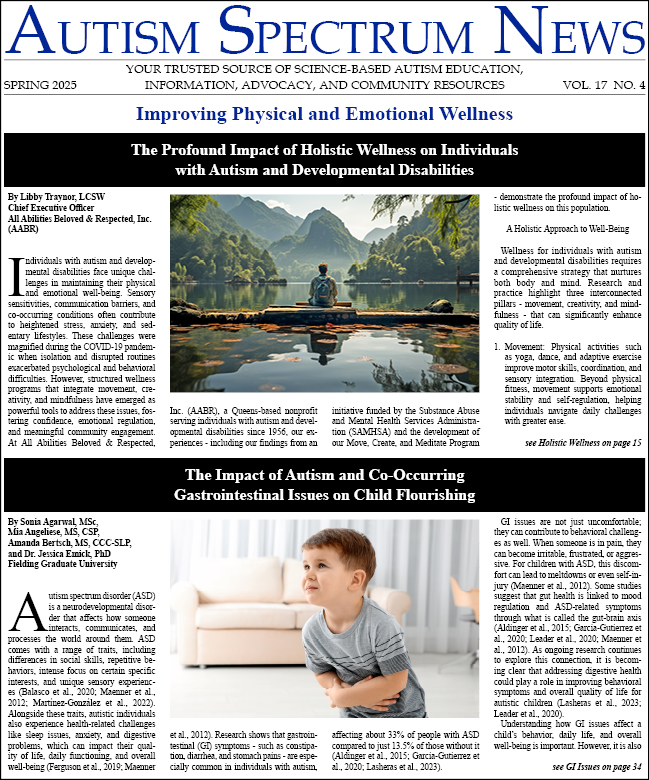-
Breaking Down the Barriers of Social Communication for Young Adults
The transition from adolescence to adulthood is an important and transitory juncture in the lives of modern young individuals. This exciting and oftentimes anxiety-inducing time brings with it a host of challenges: increased independence, heightened self-awareness, the taking on of more personal...
-
Introducing the Use of Behavior Skills Training to Achieve Staff Proficiency in the Use of PECS
Learning to communicate using speech and language is one of the primary tasks for young children. When delays are observed in language acquisition, they are considered one of the earliest indicators of developmental deficits that could potentially lead to social, behavioral, and academic...
-
What NOT to Say…
It’s easy to say the wrong thing to someone, even when you have the best of intentions. Everyone has done it, and whether you realize it yourself or someone points it out to you, mistakes like these don’t feel good. All of us learn social and communication skills from many sources, including...
-
A Group-Format Parent Training Program to Improve Communication Skills in Young Children with ASD
The first few years of life are an important period for communication and language development. Even before the emergence of spoken language, typically-developing children engage in communicative interchanges with caregivers through gaze, directed facial expressions, gestures, and vocalizations....
-
Three Strategies to Strengthen Communication for Adults with Autism and Learning Differences
Communication is an essential skill that contributes to success with relationships. Individuals with ASD particularly focus on growth in their communicative skills for a majority of their lives. With young adulthood comes the combination of self-identity development and the presentation of more...
-
Improving Communications with Children with Autism and Special Needs Using Augmentative and Alternative Communication Strategies
As a paediatrician, we are taught that the developmental progress of a three to four-year-old child should include well over 500 words and that a child should be able to describe things and situations in a meaningful way. This milestone is one that all parents strive for as it is an important part...
-
The Development of Theatre Arts to Facilitate Social and Communication Skills for People with Autism Spectrum Disorder
There is an emerging though limited body of research demonstrating the effectiveness of theatre-related activities to facilitate social and communication skills, teach emotional recognition and expression, non-verbal behaviors and gestures, listening and conversation skills, eye contact, as well as...
-
Improving Communication Skills: Using Behavior Analytic Science Effectively
Learners with Autism Spectrum Disorder (ASD) often face significant challenges learning socially appropriate and effective communication skills. Because these challenges are present across all ages and stages of development, programming targets can range from communicating basic wants and needs to...
-
An Overview of Communication Problems in Children with ASD
What is autism spectrum disorder? Autism spectrum disorder (ASD) is a developmental disability that can cause significant social, communication, and behavioral challenges. The term “spectrum” refers to the wide range of symptoms, skills, and levels of impairment that people with ASD can...
-
Building Communication Competence through Milieu Speech-Language Therapy
Speech and language therapy treatment is typically viewed in two ways: pull-out versus push-in. Pull-out therapy occurs outside of the student’s classroom for an allotted amount of time, typically without his or her peers, while push-in therapy, in the school setting, is when services are...





